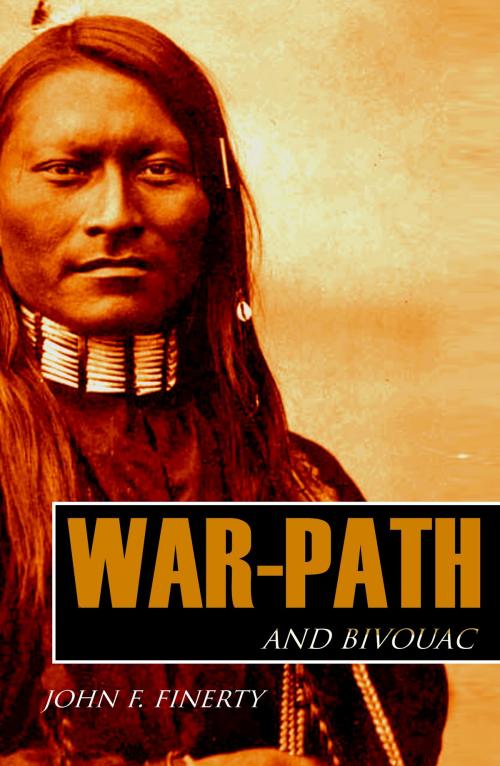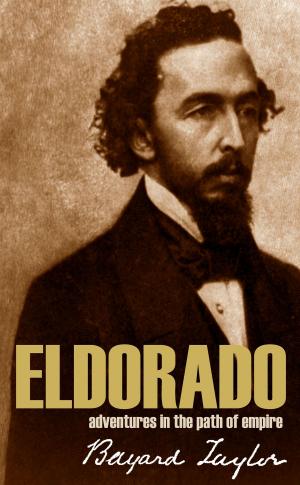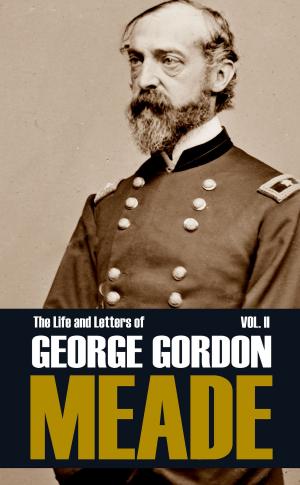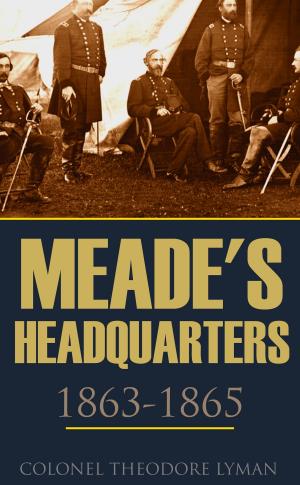War Path and Bivouac: Custer, Crook, and the Great Sioux War (Expanded, Annotated)
Nonfiction, History, Americas, Native American, United States, 19th Century, Military| Author: | John Frederick Finerty | ISBN: | 1230001449402 |
| Publisher: | BIG BYTE BOOKS | Publication: | November 30, 2016 |
| Imprint: | Language: | English |
| Author: | John Frederick Finerty |
| ISBN: | 1230001449402 |
| Publisher: | BIG BYTE BOOKS |
| Publication: | November 30, 2016 |
| Imprint: | |
| Language: | English |
One of the premier classic books on the American Indian Wars. John Frederick Finerty was a famous journalist for the Chicago "Times" who went into the field to report on the U.S. government's efforts to force Native Americans onto reservations.
In 1876, Finerty was with General George Crook's forces at the Battle of the Rosebud. Part of Crook's aim was to connect with George Armstrong Custer's 7th Cavalry at the Little Bighorn. It never happened and Custer was killed along with five companies of his regiment by Crazy Horse, Gall, Sitting Bull, Rain-in-the-Face and other leaders.
A teenage refugee from the Irish revolutionary movement, Finerty immigrated to the U.S. in 1864 and signed up to fight in the Civil War. By 1870 he was writing for newspapers, eventually making a national name for himself. He repeatedly went to the West to cover the Indian Wars and wrote with great intelligence, humor, and compassion about what he saw.
Always self-deprecating and sardonic, he nevertheless had this to say to would-be Western journalists:
“Let no easy-going journalist suppose that an Indian campaign is a picnic. If he goes out on such business he must go prepared to ride his forty or fifty miles a day, go sometimes on half rations, sleep on the ground with small covering, roast, sweat, freeze, and make the acquaintance of such vermin or reptiles as may flourish in the vicinity of his couch; and, finally, be ready to fight Sitting Bull or Satan when the trouble begins, for God and the United States hate non-combatants.”
His conclusions about the Indian War included this:
"White greed is not by any means satisfied, even though the fairest portion of the Sioux reservations have been given up to settlement...we of the Caucasian race must confess, however reluctantly, that even the red Indian has some rights on the soil which bore him that the whites are bound to respect."
You'll have a hard time putting this one down. Expanded and heavily annotated with information about events and people.
Every memoir of the Old West provides us with another view of an era that changed America forever.
For the first time, this long out-of-print volume is available as an affordable, well-formatted book for e-readers and smartphones.
Be sure to LOOK INSIDE by clicking the cover above or download a sample.
One of the premier classic books on the American Indian Wars. John Frederick Finerty was a famous journalist for the Chicago "Times" who went into the field to report on the U.S. government's efforts to force Native Americans onto reservations.
In 1876, Finerty was with General George Crook's forces at the Battle of the Rosebud. Part of Crook's aim was to connect with George Armstrong Custer's 7th Cavalry at the Little Bighorn. It never happened and Custer was killed along with five companies of his regiment by Crazy Horse, Gall, Sitting Bull, Rain-in-the-Face and other leaders.
A teenage refugee from the Irish revolutionary movement, Finerty immigrated to the U.S. in 1864 and signed up to fight in the Civil War. By 1870 he was writing for newspapers, eventually making a national name for himself. He repeatedly went to the West to cover the Indian Wars and wrote with great intelligence, humor, and compassion about what he saw.
Always self-deprecating and sardonic, he nevertheless had this to say to would-be Western journalists:
“Let no easy-going journalist suppose that an Indian campaign is a picnic. If he goes out on such business he must go prepared to ride his forty or fifty miles a day, go sometimes on half rations, sleep on the ground with small covering, roast, sweat, freeze, and make the acquaintance of such vermin or reptiles as may flourish in the vicinity of his couch; and, finally, be ready to fight Sitting Bull or Satan when the trouble begins, for God and the United States hate non-combatants.”
His conclusions about the Indian War included this:
"White greed is not by any means satisfied, even though the fairest portion of the Sioux reservations have been given up to settlement...we of the Caucasian race must confess, however reluctantly, that even the red Indian has some rights on the soil which bore him that the whites are bound to respect."
You'll have a hard time putting this one down. Expanded and heavily annotated with information about events and people.
Every memoir of the Old West provides us with another view of an era that changed America forever.
For the first time, this long out-of-print volume is available as an affordable, well-formatted book for e-readers and smartphones.
Be sure to LOOK INSIDE by clicking the cover above or download a sample.















